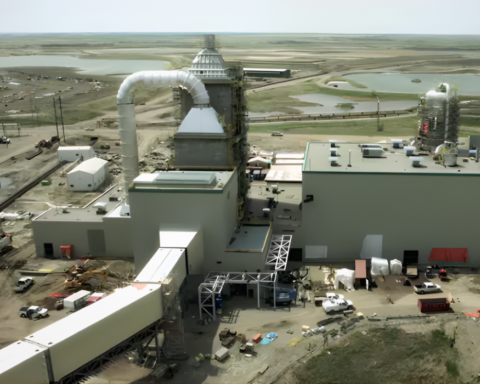Poland hasn’t exactly been a paragon of virtue in the fight against climate change. Its coal mining industry remains one of Europe’s largest, and fossil fuels – mostly coal – still make up more than 80% of its electricity supply.
But hopeful signs of change are emerging there on a local level, encapsulated in a January decision by Warsaw’s city council to endorse the Fossil Fuel Non-Proliferation Treaty, an emerging global campaign that describes itself as “an international mechanism to manage a fast and fair transition away from coal, oil and natural gas.” Warsaw is the first city in central Europe to make such a move.
So far, more than 80 cities and subnational governments have endorsed the treaty. Along with the nation-states of Vanuatu and Tuvalu, the World Health Organization and the European Parliament are officially urging governments to endorse it. California is the latest consider the treaty.
The proposed treaty would align fossil fuel production with the Paris Agreement goal to limit global warming to 1.5°C using three mechanisms: ending the expansion of fossil fuel production, phasing out fossil fuels, and ensuring a “just” global transition that takes account of each country’s ability to replace fossil fuels with renewables.
Russia’s invasion of Ukraine has raised new hurdles in Poland’s already sluggish efforts to lower its dependence on fossil fuels but has also created an incentive to move faster. Natural gas was poised to play a key role in weaning Poland off coal, providing a lower-emissions “bridge” from coal to renewable sources. However, much of the gas would have come from Russia, and those plans are now in disarray, since Russia stopped exporting to Poland last year.
“In the conditions of economic recession and growing energy poverty, there is a risk that the energy transition may be slower or even stops altogether,” Ernst & Young warned in a recent report on Poland’s energy sector, estimating that the transformation could now cost €135 billion by 2030, equal to about a quarter of total GDP. The estimate includes measures to soften the blow for coal producers.
Nonetheless, progress is being made. Poland has become one of Europe’s fastest-growing solar energy markets, with capacity soaring from 200 megawatts in 2018 to about 10 gigawatts. It also plans to build 5.9 gigawatts of wind capacity in the Baltic Sea by 2030, rising to 11 by 2040.
Michael Poland, an Australia-based climate justice activist who directs the non-proliferation treaty campaign, says that “we applaud the valiant efforts of generations of Polish climate activists [who] demonstrated that climate progress is attainable through collective action.”







